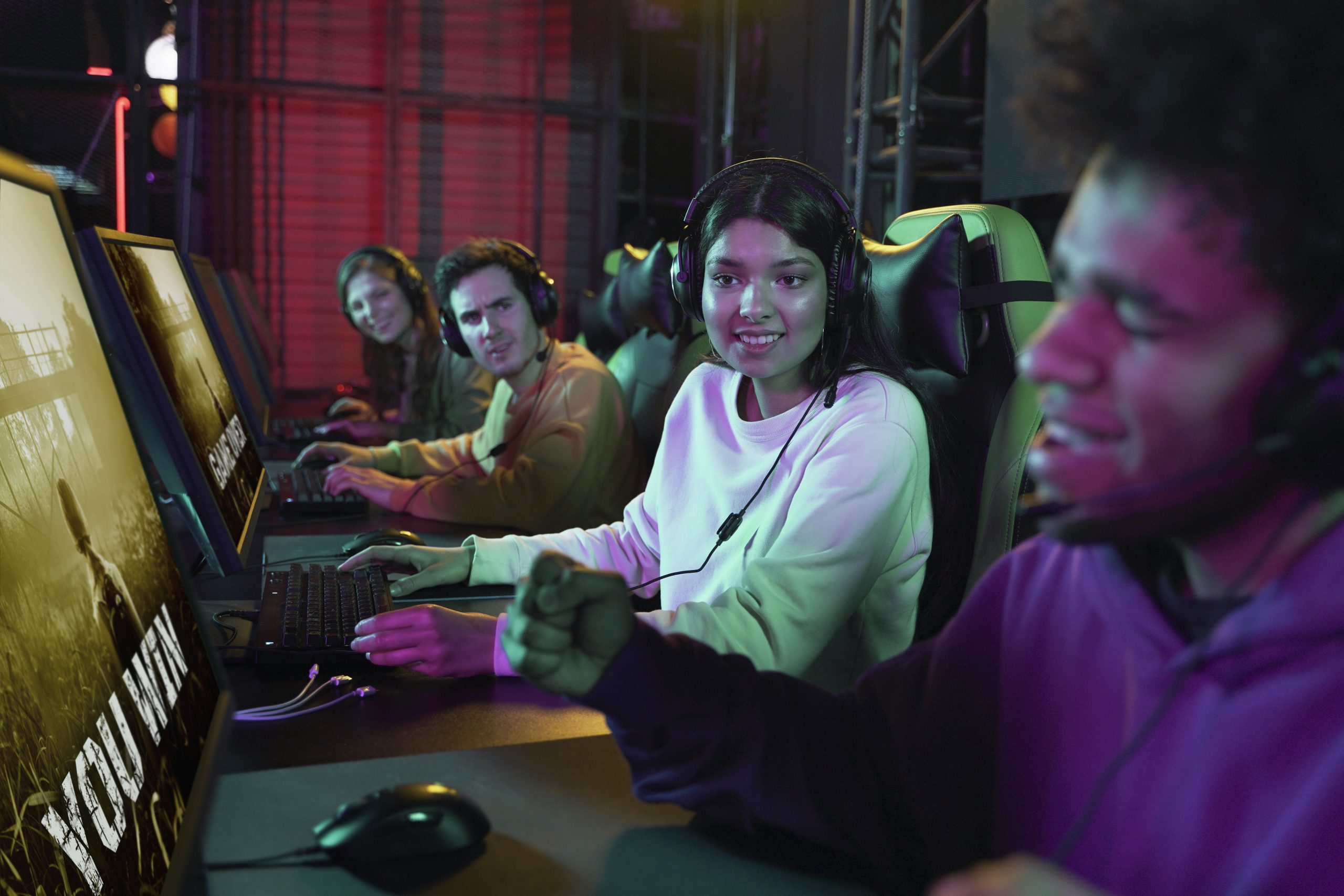In recent years, eSports has exploded onto the global stage, captivating millions of fans and garnering recognition as a legitimate competitive field. Once dismissed as mere entertainment, professional gaming now shares the spotlight with traditional sports like soccer, basketball, and tennis. But what exactly has propelled this meteoric rise, and can gaming truly be considered a sport? Let’s explore the phenomenon and its implications.
The Growth of eSports
With tournaments offering prize pools in the millions, games like League of Legends, Dota 2, and Counter-Strike: Global Offensive have become household names among gaming enthusiasts. Platforms like Twitch and YouTube Gaming have allowed players to connect with audiences worldwide, turning top gamers into global celebrities.
The industry’s growth has been staggering. In 2023, the global eSports market surpassed $1.5 billion, with millions tuning in to watch live-streamed tournaments. Major companies, including tech giants and sports brands, are sponsoring teams and events, further blurring the line between eSports and traditional athletics.
Physical and Mental Demands
One of the biggest debates surrounding eSports is whether it qualifies as a sport. Critics argue that gaming lacks the physical exertion traditionally associated with sports. However, competitive gaming demands exceptional reflexes, hand-eye coordination, and mental agility. Professional gamers often train for 8–10 hours daily, perfecting strategies, analyzing opponents, and honing their skills.
Additionally, the mental demands of gaming are immense. Players must maintain focus for extended periods, adapt to rapidly changing scenarios, and communicate effectively with teammates. This level of cognitive intensity parallels the mental challenges faced by chess players and race car drivers—both recognized as sports.
Global Recognition
The inclusion of eSports in global sporting events signals its acceptance. The Asian Games, for instance, included eSports as a medal event in 2022, showcasing games like FIFA and Street Fighter. Some countries, including South Korea and the United States, officially recognize professional gamers as athletes, granting them the same visa privileges as traditional sports stars.
Furthermore, universities worldwide are offering scholarships for eSports athletes, acknowledging their discipline and competitive prowess. This institutional support reinforces the idea that gaming has evolved beyond a pastime into a respected competitive arena.
Health and Balance in eSports
Despite its rise, eSports faces challenges, particularly regarding health. To address these concerns, professional teams now employ fitness trainers, psychologists, and nutritionists to ensure players maintain a balanced lifestyle.
Moreover, mental health in gaming is gaining attention. The pressure to perform at elite levels, coupled with the public scrutiny of streaming, can lead to burnout and anxiety. Industry stakeholders are working to provide resources and support to help players cope.
Conclusion
eSports has undeniably redefined the concept of competition in the 21st century. While it may not involve physical exertion in the traditional sense, the skill, strategy, and dedication required rival those of any sport. As its audience and influence continue to grow, eSports is carving out its place alongside traditional sports, proving that competition comes in many forms.
Gaming is no longer just a hobby; it’s a global phenomenon. The question is no longer if eSports is a sport, but how it will shape the future of competitive entertainment.
